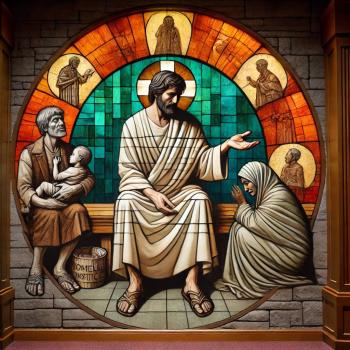“The past is never dead,” wrote William Faulkner, in Requiem for a Nun. “It’s not even past.”
That’s especially true in the Unites States when dealing with issues of race.
Racism, prejudice, and bigotry are as American as red, white, and blue.
Racists are rampant, in part because they grew up in a racist, segregated society.
Prejudice is prevalent among people of a certain age. And among some of their children. And in their politics and assumptions and their laws, and in business dealings and in everything they contact.
Since 1619, the first year African slaves were dragged into Virginia, the U.S. has at its root the poisonous core of racism, slavery, and bigotry. And for every individual and institution that fails to recognize this verifiable fact, and address it in someway, the problems propagate as sure a bees pollinate flowers.
More needs to be done to combat the immoral scourge of racism.
The original sin of American racism will only begin to cease to be a problem the day everyone acknowledges it is a problem.
Racism was a problem on Jan. 15, 1929.
And on June 14, 1946.
And April 4, 1968.
Racism was a problem today.
The words Martin Luther King Jr. wrote on April 16, 1963, remain as true today as the day he wrote them while sitting in jail.
“How does one determine whether a law is just or unjust? A just law is a man made code that squares with the moral law or the law of God. An unjust law is a code that is out of harmony with the moral law. To put it in the terms of St. Thomas Aquinas: An unjust law is a human law that is not rooted in eternal law and natural law. Any law that uplifts human personality is just. Any law that degrades human personality is unjust. All segregation statutes are unjust because segregation distorts the soul and damages the personality. It gives the segregator a false sense of superiority and the segregated a false sense of inferiority. Segregation, to use the terminology of the Jewish philosopher Martin Buber, substitutes an ‘I it’ relationship for an ‘I thou’ relationship and ends up relegating persons to the status of things. Hence segregation is not only politically, economically and sociologically unsound, it is morally wrong and sinful. Paul Tillich has said that sin is separation. Is not segregation an existential expression of man’s tragic separation, his awful estrangement, his terrible sinfulness? Thus it is that I can urge men to obey the 1954 decision of the Supreme Court, for it is morally right; and I can urge them to disobey segregation ordinances, for they are morally wrong.”
Martin Luther King Jr. was a criminal murdered by a racist.
Jesus was a criminal, legally executed by the government.
Millions of people suffer today because of racist and immoral laws in the United States.
Jesus expects us to follow him and oppose unjust laws, it is immoral to do anything less.













